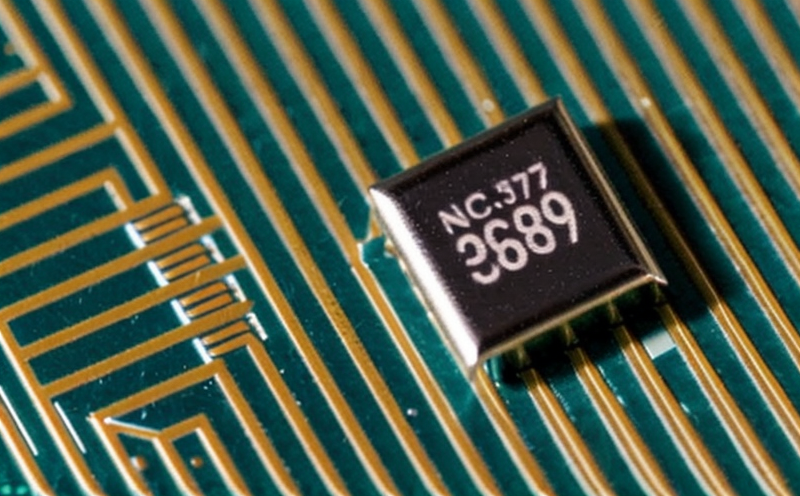JEDEC JESD22-A143 Microchip Power Dissipation Lifetime Testing
The JEDEC JESD22-A143 standard is a critical benchmark for ensuring the reliability and lifetime of microchips, particularly those used in high-power applications. This testing method simulates real-world operating conditions to evaluate how well a microchip can dissipate power over its expected life span without suffering damage or degradation.
The test procedure involves subjecting the microchip to various thermal cycles, current stress levels, and environmental conditions that it is likely to encounter during typical use. Compliance with JESD22-A143 helps manufacturers ensure their products can withstand the harsh operating environments they will face in end-user applications.
Our laboratory adheres strictly to this standard, using state-of-the-art equipment and methodologies to provide accurate and reliable test results. Our team of experts ensures that every aspect of the testing process is meticulously controlled to adhere to the precise specifications outlined in JESD22-A143.
The testing begins with a thorough inspection of the microchips to ensure they meet the necessary quality standards before being subjected to thermal stress. This step is critical as even minor defects can lead to premature failure during testing or in the field.
Once prepared, the microchips are placed into a specialized test chamber where they undergo a series of thermal cycles designed to mimic real-world conditions. These cycles include both heating and cooling phases that simulate the environment the microchip will encounter over its lifetime. During these cycles, we measure key parameters such as temperature rise, power dissipation, and thermal resistance.
The current stress levels are also carefully controlled to ensure they fall within the specified limits of JESD22-A143. This helps us determine how well the microchip can handle high-power demands without failing. The test environment includes various humidity levels and other factors that could impact the performance of the microchip.
After completing the thermal cycles, we conduct a final inspection to check for any signs of damage or degradation. If the microchip passes this inspection, it is deemed compliant with JESD22-A143 standards. Compliance indicates that the microchip can reliably dissipate power and operate within its specified limits over an extended period.
The results of this testing are detailed in a comprehensive report that includes all the parameters measured during the test. This report serves as valuable information for quality managers, compliance officers, R&D engineers, and procurement teams to make informed decisions about product design and manufacturing processes.
- Thermal Cycling: We use advanced thermal cycling equipment that can simulate a wide range of environmental conditions. This ensures the microchips are tested under realistic operating conditions.
- Current Stress Levels: Our testing apparatus allows us to apply precise current stress levels as specified in JESD22-A143, ensuring accurate measurement and evaluation of power dissipation capabilities.
- Data Collection: Continuous data collection during the test provides detailed insights into how the microchip performs under various conditions. This data is crucial for refining manufacturing processes and improving product quality.
- Compliance Verification: By adhering strictly to JESD22-A143, we ensure that our testing results are accurate and reliable, providing peace of mind to our customers.
- Environmental Factors: We account for various environmental factors such as humidity levels and ambient temperatures that could affect microchip performance. This comprehensive approach ensures thorough evaluation.
- Test Chamber: The specialized test chamber used in our laboratory is designed to simulate real-world operating conditions, providing a realistic testing environment.
- Data Analysis: Our data analysis team uses sophisticated software tools to interpret the collected data, ensuring accurate and consistent results.





